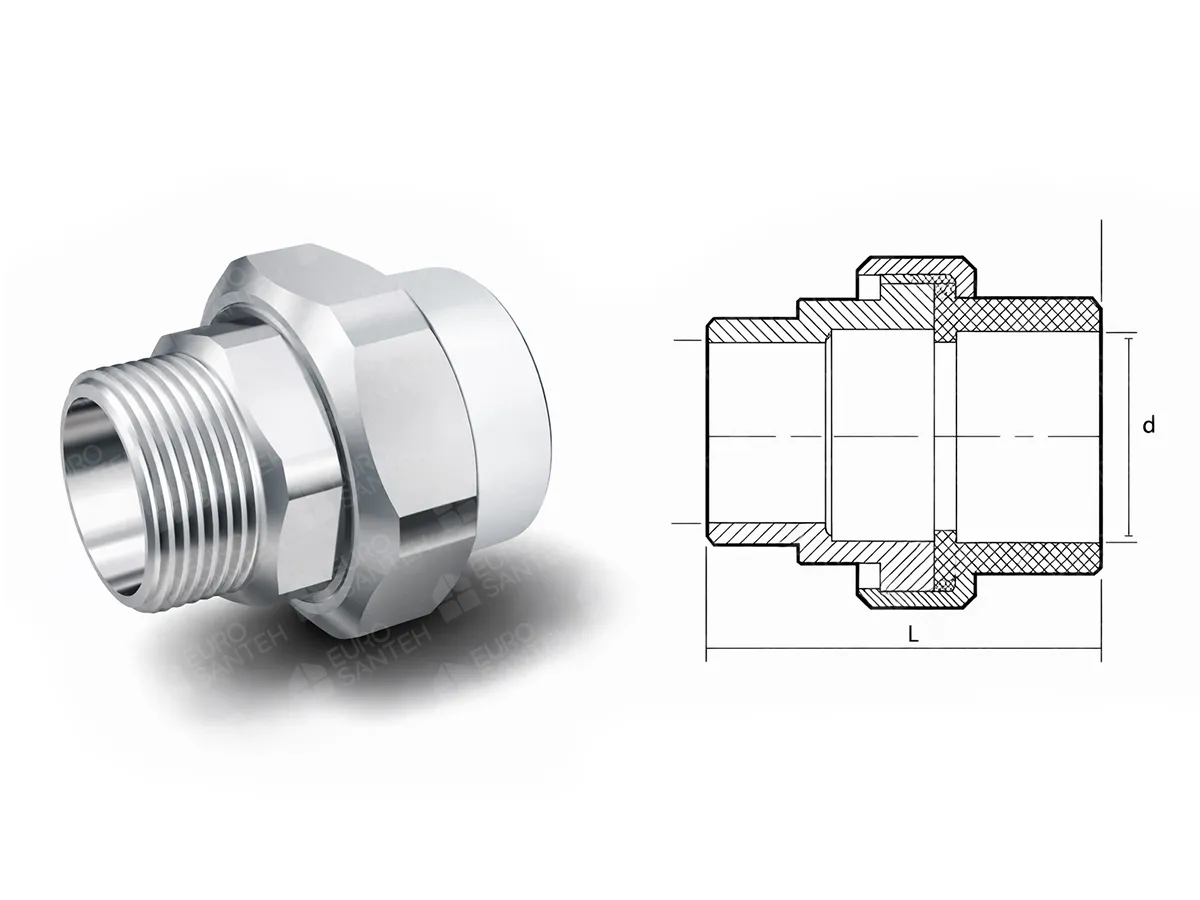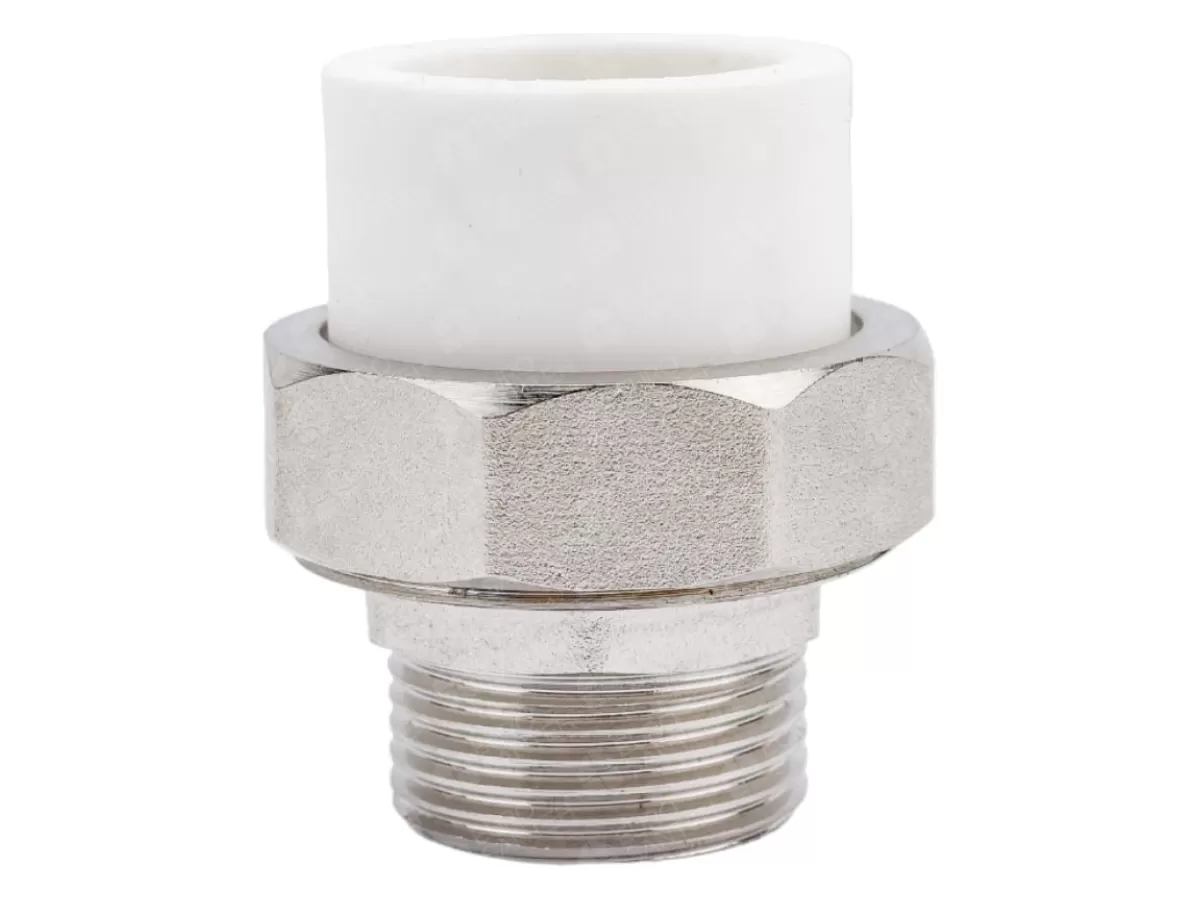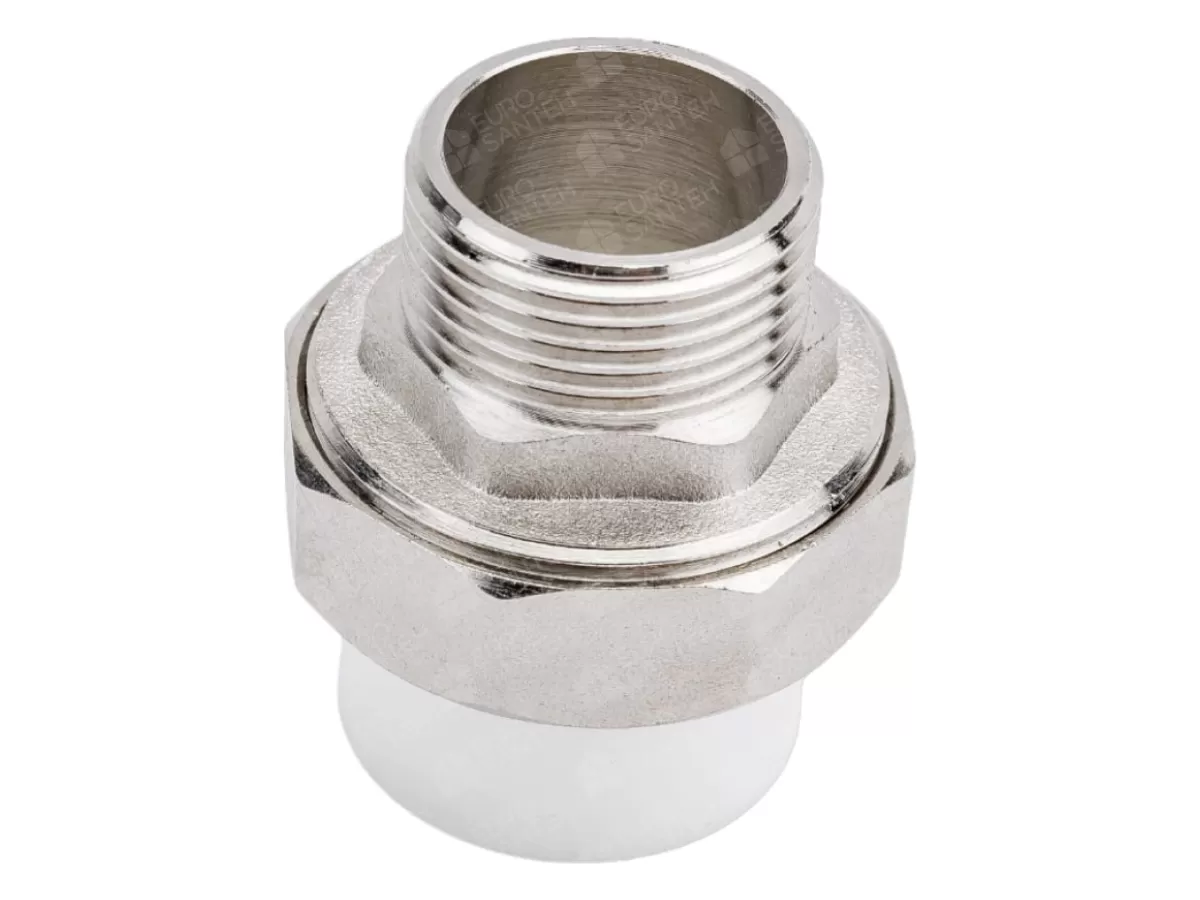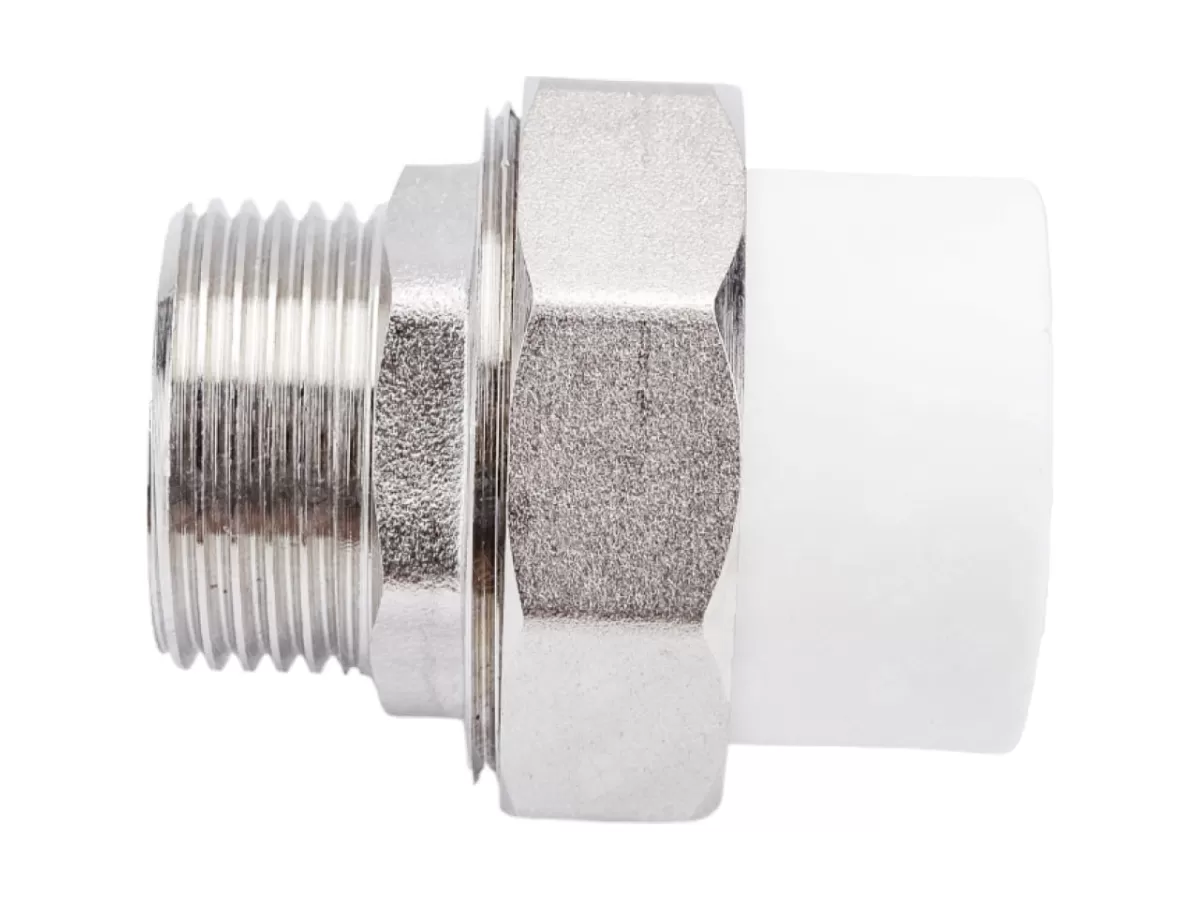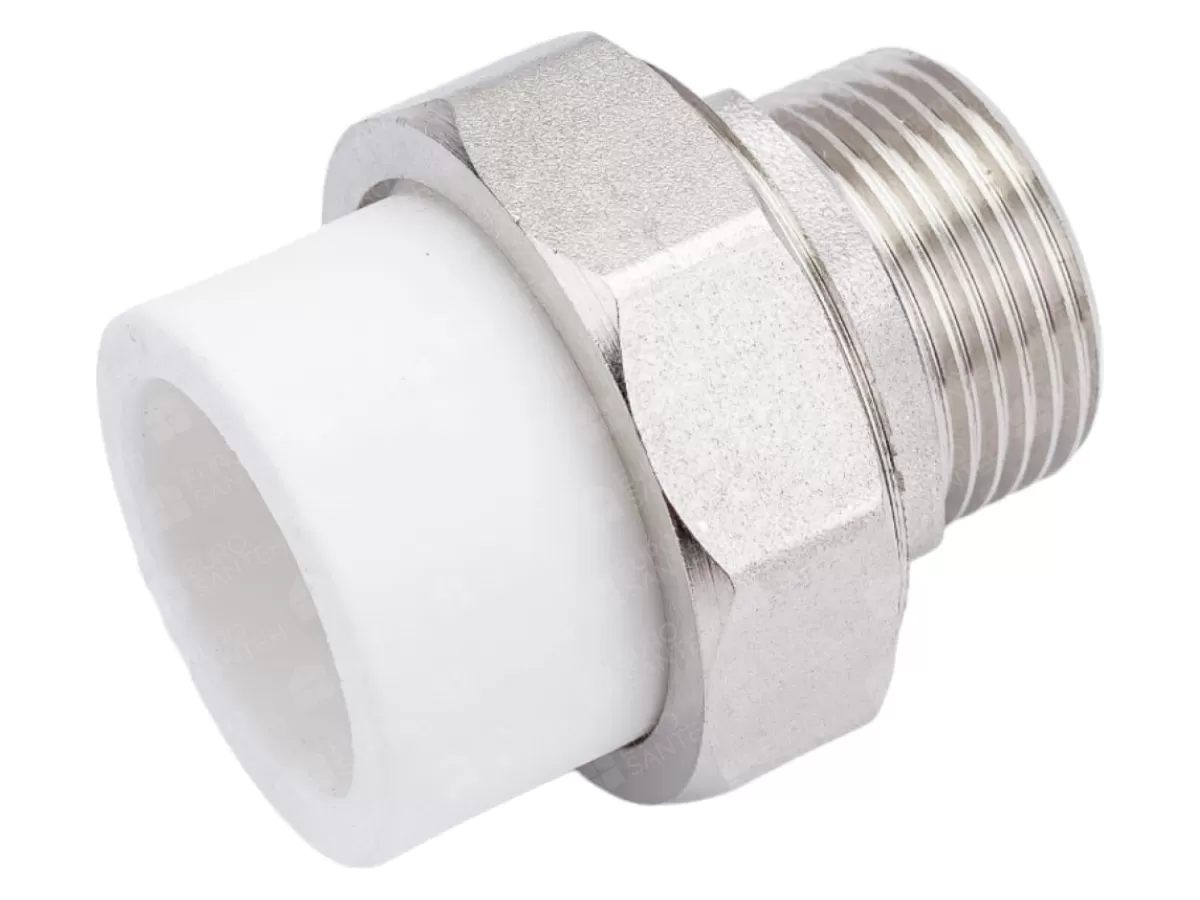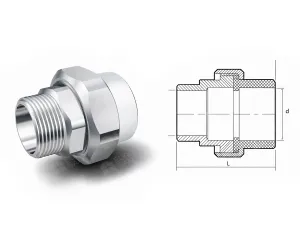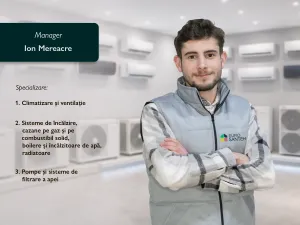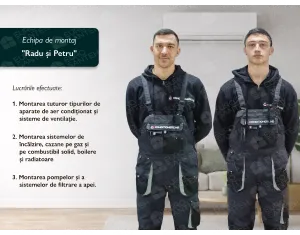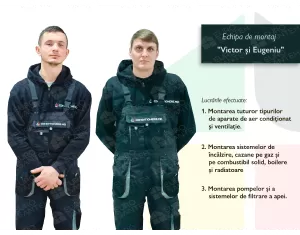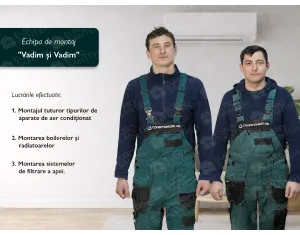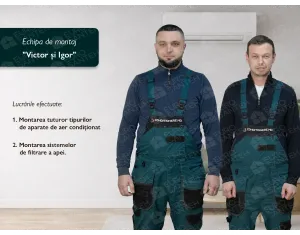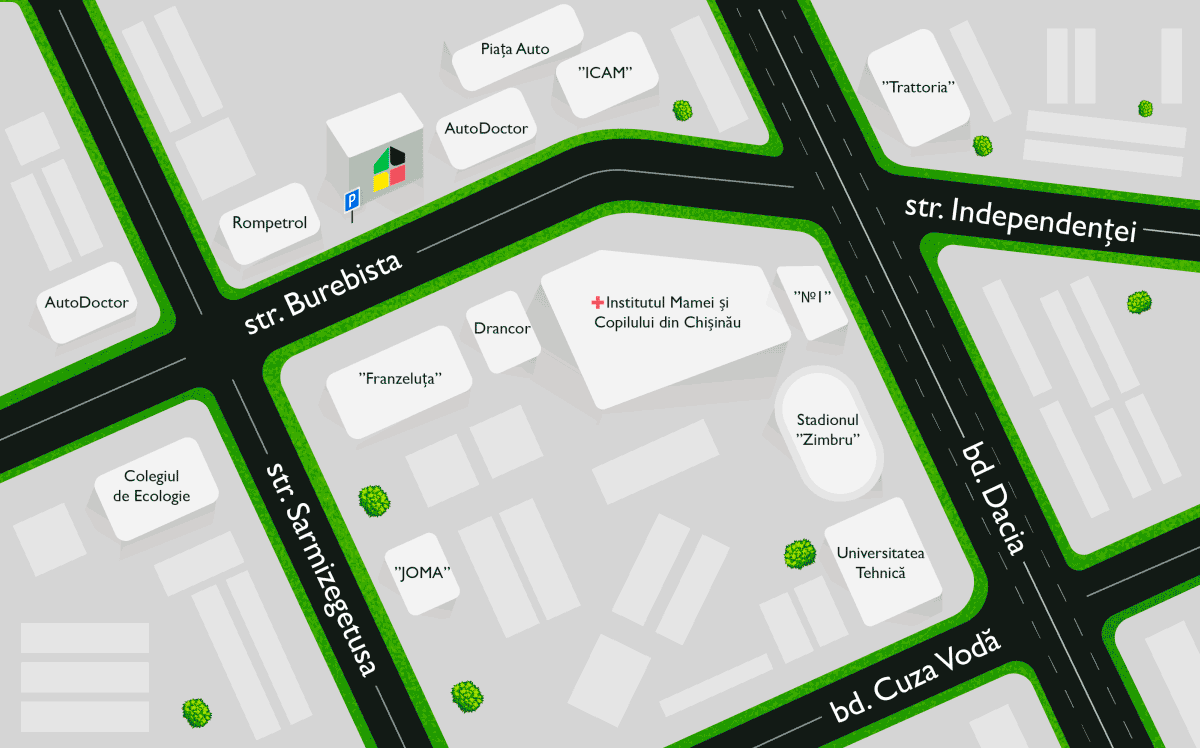Unite polypropylene with metal transition (PPR) M d.40x1 1/4
Polypropylene Holland (PPR) is a material frequently used in plumbing and heating systems due to its excellent properties. The material type specified for this product is PPR, a modified form of polypropylene that offers numerous advantages, including resistance to high temperatures and high pressures, chemical resistance and durability. Polypropylene (PPR) is renowned for its versatility and robustness, making it ideal for a variety of plumbing applications.
Technical specifications
Type: Polypropylene (PPR) Dutchman M
Diameter: 40 mm
Inch diameter: 1 1/4
Pressure: 16 bar
Material: PPR
Important details
Dutch Type Polypropylene (PPR) M
This type of Dutchman is specially designed to provide secure and durable connections in plumbing systems. Modified Polypropylene (PPR) (M) improves the basic characteristics of the material for increased performance.
40 mm diameter
A diameter of 40 mm is suitable for a variety of applications, including water supply and heating systems. This diameter ensures optimal liquid flow, reducing pressure losses and maximizing system efficiency.
1 1/4 inch diameter
The inch equivalent of 40 mm diameter is 1 1/4 inch, a common size in plumbing specifications, facilitating compatibility with other components and fittings.
16 bar pressure
A pressure capacity of 16 bar makes this material suitable for systems with high pressure requirements. This ensures safe and reliable operation even under mechanical stress.
Material: PPR (Polypropylene)
Polypropylene (PPR) is a thermoplastic plastic material recognized for its chemical and physical resistance. PPR is corrosion resistant, making it ideal for use in potable water piping and heating applications where safety and durability are essential. PPR material is also light and flexible, making it easy to install and handle.
The advantages of using PPR
Resistance to Temperature and Pressure: PPR can withstand high temperatures and high pressures, making it suitable for a variety of applications, from hot and cold water installations to underfloor heating systems.
Durability: Due to its chemical and physical properties, PPR is extremely durable, having a long service life compared to other materials used in installations.
Safety and Hygiene: The material does not react with chemicals in the water, maintaining water quality and preventing contamination. It is also safe for use in drinking water systems.
Ease of Installation: PPR is easy to cut and join, which reduces installation time and costs. Connections made with PPR are usually fusion welded, ensuring strong and secure joints.
Corrosion Resistance: Unlike metallic materials, PPR does not rust or degrade in the presence of moisture, extending the life of the plumbing system.
Conclusion
Choosing a 40 mm (1 1/4 inch) polypropylene (PPR) Dutchman with a pressure of 16 bar is ideal for plumbing systems that require a durable, strong and safe material. PPR offers notable advantages such as resistance to high temperatures and pressures, long-term durability and hygienic safety. Thus, this type of Dutchman is an excellent choice for ensuring an efficient and reliable plumbing system.
| Maximum working pressure, bar: | 16 |
| Tip filet: | External thread |
| Type: | Olandez |
| Diameter, mm: | 40 |
| Diameter, inch: | 1.1/4 |
| Body material: | PPR |
| Color: | White |
| Ambient temperature, °C: | 0...+50 |
